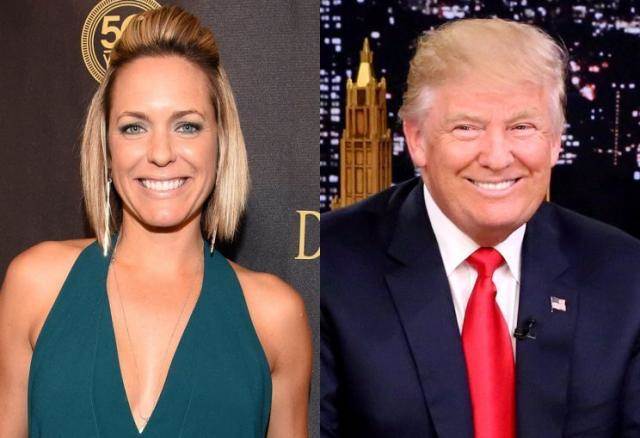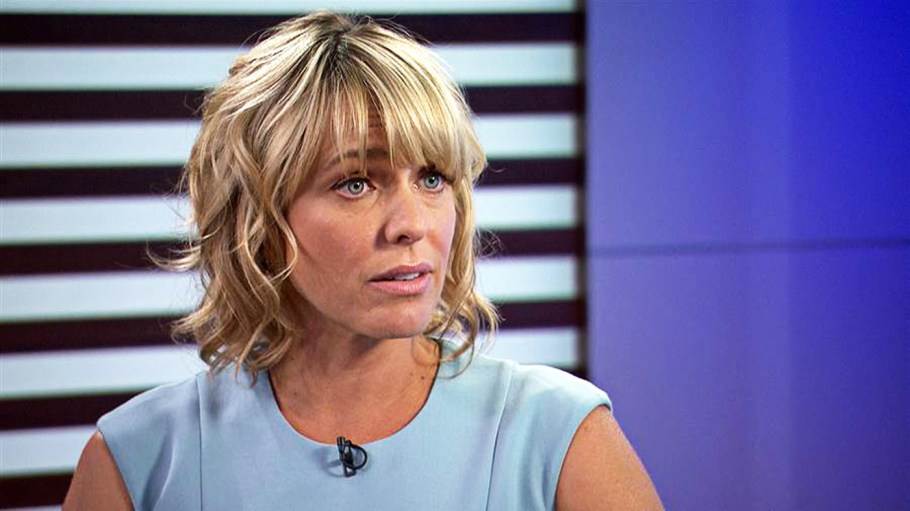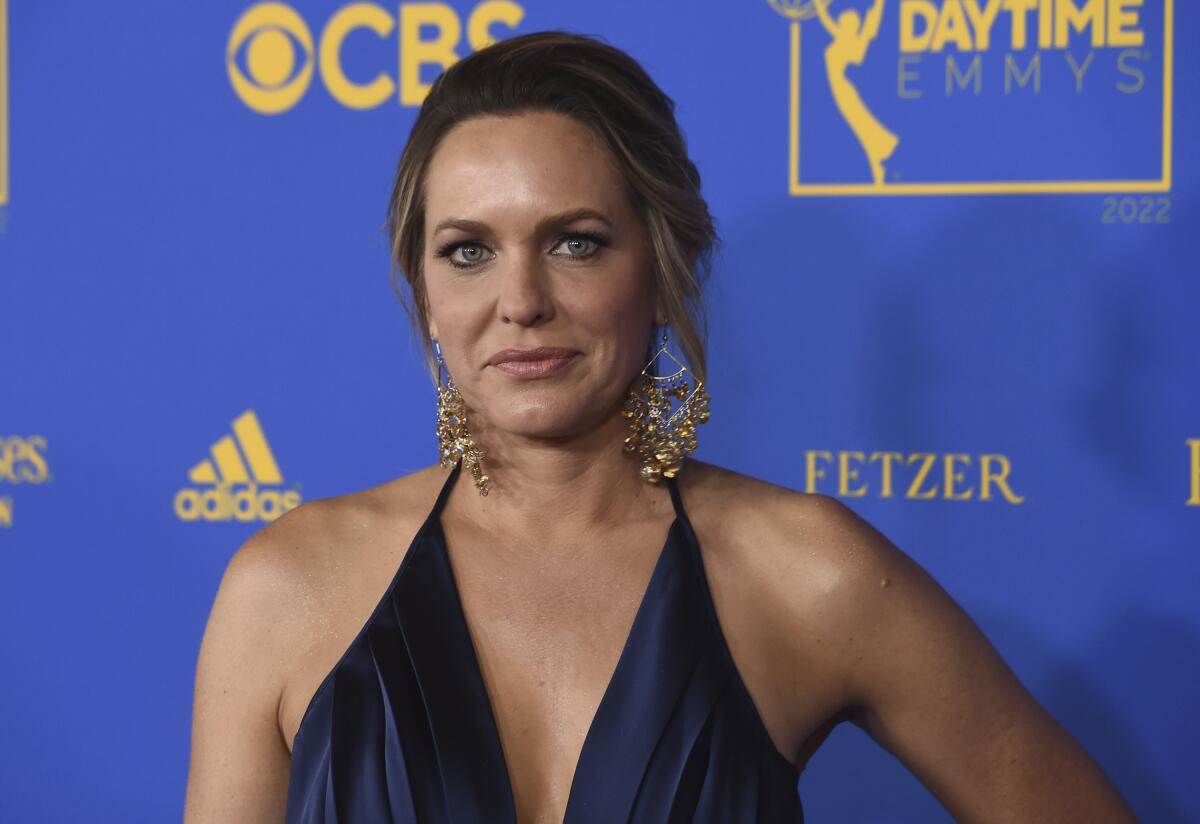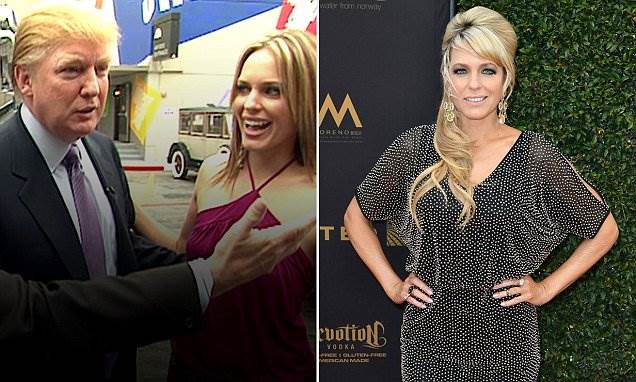Days Of Our Lives Actress Arianne Zucker Responds to GH Star’s Insult as MAGA Trash

The soap opera world has been buzzing with a fiery controversy, ignited by a seemingly innocuous statement from Days of Our Lives star Arianne Zucker. While her past struggles with sexual harassment are well-documented, Zucker recently made headlines for voicing her support for former president.
Donald Trump, triggering a storm of criticism from fans and colleagues alike.

A Divided Fanbase: Zucker’s Support for Trump Sparks Outrage
Arianne Zucker, known for her role as Nicole Walker on Days of Our Lives, has been a prominent figure in daytime television for over two decades.
While she’s known for her portrayal of strong female characters, her recent comments have sparked outrage, dividing her fanbase.
On the Miss Understood podcast, Zucker discussed her views on Trump’s presidency, admitting that while she wasn’t a fan of his communication style, she acknowledged some of his policies.
She also claimed that her financial situation was better during his presidency, leading many to label her comments as politically charged and insensitive.
“I don’t like to talk politics, but as far as the way he speaks, could he do a better job of it, absolutely,” she stated. “But I think there are policies that are great that he did and I’m sure our pockets felt better four years ago than they do now.
I know my did.”

A Show of Solidarity: General Hospital Star Nancy Lee Grahn Joins the Debate
The controversy didn’t stop there. General Hospital star Nancy Lee Grahn, known for her outspoken personality, took to social media to express her disapproval of Zucker’s stance.
In a series of scathing tweets, Grahn slammed Zucker’s support for Trump, criticizing her for supporting a politician who has been accused of sexual misconduct and for promoting policies that many consider to be harmful.
“I’m sad because she is one of my favorite daytime actors,” Grahn tweeted.
“But anyone who can’t see fascism on the horizon is purposefully blind.”
Grahn’s criticism ignited a wave of online debate, with fans weighing in on both sides of the argument. Many expressed disappointment in Zucker’s stance, arguing that her support for Trump contradicted her previous allegations of sexual harassment.
Others defended her right to have her own political opinions, citing freedom of speech and the right to disagree.

A Deeper Dive into the Controversial Statement
Arianne Zucker’s statement, seemingly simple at first glance, touches on complex issues of political polarization, identity politics, and the challenges of navigating personal opinions in the public eye.
Her decision to voice her support for a controversial figure like Trump, particularly in light of her past struggles with sexual harassment, has generated a whirlwind of reactions, highlighting the deeply divisive nature of modern politics.
While some believe that Zucker’s support for Trump is a matter of personal preference and should be respected, others argue that her stance contradicts her past experiences and undermines her own credibility.
The controversy has sparked important conversations about the role of celebrities in political discourse, the consequences of public statements, and the complex intersection of personal experiences and political opinions.

The Power of Social Media
The controversy surrounding Arianne Zucker’s statement serves as a stark reminder of the power of social media in shaping public opinion. The rapid spread of information and the prevalence of online forums have allowed for widespread engagement and a platform for immediate reactions, often amplified by the echo chambers of social media.
Zucker’s experience highlights the challenges faced by public figures in navigating the complexities of the digital landscape. Her seemingly innocuous statement triggered a wave of criticism, highlighting the potential for backlash and scrutiny that accompanies any public expression of opinion in the age of social media.

Looking Ahead
The backlash against Arianne Zucker’s statement is a reflection of the deep political divide that exists in modern society. Her experience, while specific to her personal situation, serves as a broader reminder of the potential consequences of expressing political opinions in the public sphere.
As social media continues to play a prominent role in shaping public discourse, the challenge of navigating personal opinions and the public sphere will only become more complex in the years to come.
This controversy serves as a reminder that in a world where information travels at lightning speed, public figures must be mindful of the consequences of their words and actions.
As we move forward, it’s crucial to foster respectful dialogue and understanding across ideological divides, recognizing the power and responsibility that comes with having a voice in the digital age.








